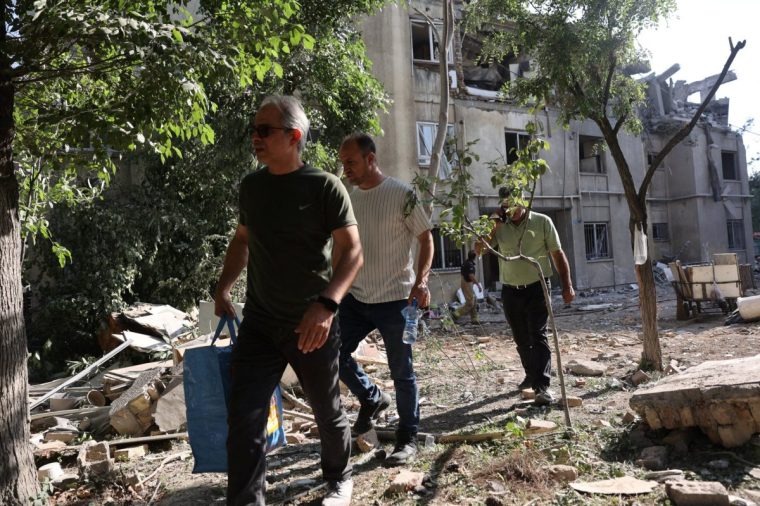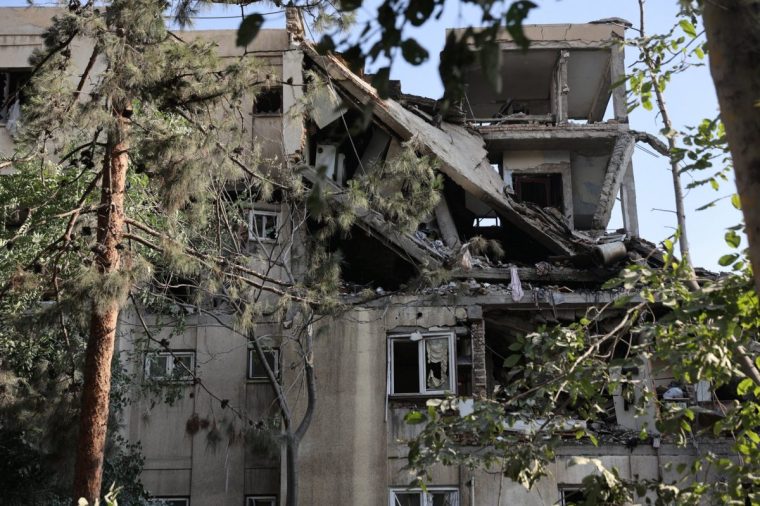Iranian sleeper cells could target Israeli embassies around the world as part of a multi-layered response to attacks on Tehran’s nuclear facilities and army , experts have said.
Tel Aviv closed all of its diplomatic outposts on Friday in the wake of the strikes against Iranian nuclear sites and top generals, in anticipation of retaliation.
While Iran’s ability to respond militarily is likely to have been depleted by the Israeli strikes, Tehran vowed to respond “with full strength” – and began to launch missiles on Friday evening.
As the Middle East braced for an escalation, Keir Starmer will head to a G7 summit this weekend amid intense diplomatic efforts to try to pull the region back from the brink.
The Prime Minister chaired a Cobra meeting on Friday afternoon while the Foreign Office warned Britons in the region to stand by for alerts and warned of retaliatory missile attacks into Israel.
And in a phone call with Israeli Premier Benjamin Netanyahu, Starmer reiterated Israel’s right to self-defence in an apparent show of support, after relations with his government soured due to UK sanctions against two of his cabinet ministers over Gaza.
Six ways Iran could respond
A Downing Street spokesperson said: “The Prime Minister was clear that Israel has a right to self-defence and set out the UK’s grave concerns about Iran’s nuclear programme.
“He reiterated the need for de-escalation and a diplomatic resolution, in the interests of stability in the region.”
The RAF was not involved in shooting down Iranian drones heading to Israel but military help in the future has not been ruled out.
Richard Pater, the director of the Britain Israel communications and research centre (BICOM), said it was not clear what was left of Iran’s military capability, but there were six ways Tehran could retaliate, including three directly via air strikes – either with cruise missiles, ballistic missiles or suicide drones against Israel.
Iran could also hit back through two proxies in the region. One, Hezbollah has been severely damaged by the IDF. However, the Houthis in Yemen continue to fire rockets into Israel every day – activity which could now be stepped up, Pater added.

A sixth method could be via Iranian sleeper cells around the world that could attack Israeli embassies.
Pater said: “Iran could trigger terror cells across the globe against soft Israeli targets such as embassies and institutions. We saw that recently with the recent alleged plot on the Israeli embassy in the UK.
“Iran has sleeper cells all around the world that could strike soft targets. Israeli embassies have already been on a heightened state of alert for the last year and a half.”
Starmer’s ‘grave concerns’ and UK diplomacy
Starmer said the UK has “grave concerns” about Iran’s nuclear programme and was “very concerned about the situation that is developing” after Israel’s strikes on Iran.
He held talks by phone with French President Emmanuel Macron and German Chancellor Friedrich Merz and was planning to speak to Netanyahu later on Friday.
Asked whether Israel was justified in its action, the Prime Minister told Bloomberg News: “I’m very concerned about the situation that is developing.
“It’s obvious that for a long time we’ve had grave concerns about the nuclear programme that Iran is putting together and we absolutely recognise Israel’s right to self-defence.”
He said he will not get into “operational details” when asked if the UK would help Israel to defend itself from any retaliatory action from Iran.
But he added: “As I say, the principle of Israel’s right to self-defence is absolutely clear and we stand by that.

“We’ve long held concerns, grave concerns, about Iran’s nuclear program, and we absolutely recognize Israel’s right to self defence.
“But I’m very concerned about the escalation of this situation, which is why, along with Germany and France, we’re really clear that de-escalation is what is needed here.”
More days of strikes expected
A Middle East analyst said it was likely that Israel’s military action could go on over the weekend and that Tel Aviv would want to ensure that they had depleted Iran to minimise their response.
The source said: “They have decapitated the military leadership of both of the army and the IRGC, as well as scientists. There is likely to be at least a couple more days of strikes.
“If you are going to do this you need to completely destroy their nuclear capacity. The question is whether you can push back the nuclear programme by five to 10 years.”
The strikes by Israel came within hours of the International Atomic Energy Agency warning that Iran was in breach of its nuclear non-proliferation obligations and days before the next round of talks between Washington and Tehran on a potential nuclear deal.
Lukasz Kulesa, director for proliferation and nuclear policy at RUSI said while there were still questions over how much Iran had progressed with its production of enriched uranium, “if the decision is made to then transform it to weapons-grade uranium, this could result in them having the material for a couple of nuclear nuclear warheads in a relatively short span of time”.
He added that the timing of the Israeli strikes did point to a window before the US-Iran negotiations.
Read Next: Trump is pretending to be in control – in reality, he is impotent
“These negotiations might result in an agreement that would allow Iran to maintain some of its nuclear capabilities and knowledge. So I think the decision was seen as being operationalised in this window where Israel thought that it would need to act.”
The IAEA assessment followed a comprehensive report which confirmed the past failures of Iran to meet its obligation under the safeguards agreement, Kulesa said.
He added: “So in a sense, that was something that confirms the concerns that all the international community had about the Iranian nuclear programme.”
Comments
Post a Comment